Search Images
Browse Content (p. 947)
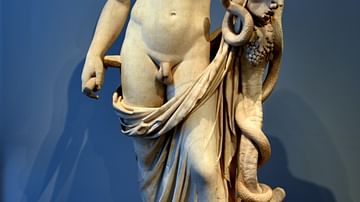
Image
Colossal Statue of Antinous
The head and the statue are ancient but were combined as recently as the 18th century. The portrait depicts the Roman Emperor Hadrian's lover, Antinous, depicted with a snake and cornucopia. The attributes allow the statue to be interpreted...
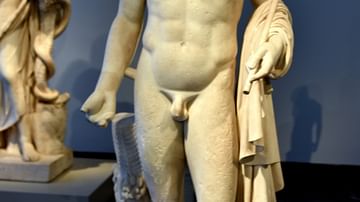
Image
Antinous as Omphalos Apollo
This torso, amended to resemble the statue of the Capitoline Antinous in Rome, belongs to a series of ancient copies of the so-called "Omphalos Apollo". This famous Greek original from around 460 BCE is preserved in several ancient copies...
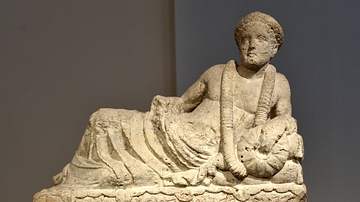
Image
Cinerary Urn Portraying the Murder of Troilus
The upper part shows a reclining man with a kantharos. On the left side of the urn's front is depicted the murder of the Trojan prince Troilus by Achilles, and on the right, there is an attacking fury with a sword. The death of young Troilus...
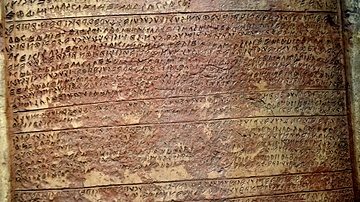
Image
Etruscan Inscription
This is a detail of a large Etruscan ritual calander from Santa Maria Capua Vetere, Italy. The Etruscan language is preserved in about 10,000 short texts; the grave, votive, and ownership inscriptions. Only four longer texts are known so...
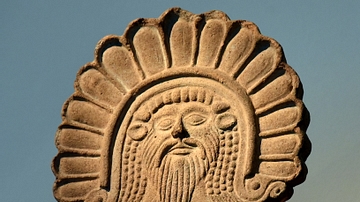
Image
Antefix Depicting Achelous
This leaf wreath antefix shows the head of Achelous. Achelous was the god of water and rivers of the whole world. Clay. From Curti, near Capua, Italy. Etruscan, 480-460 BCE. It is on display at the Altes Museum in Berlin, Germany.
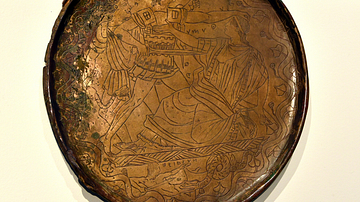
Image
Orestes Kills Clytemnestra
On this bronze mirror, a scene is carved. It depicts the killing of Clytemnestra by her son, Orestes. Engraved around 440 BCE. Acquired in 1843 CE. It is on display at the Altes Museum in Berlin, Germany.
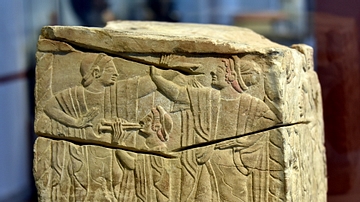
Image
Dancing Girls & Young Men on Cippus
Square-shaped cippi were found inside burial chambers and carried an egg-shaped top, possibly as a symbol of life and fertility. The scenes depicted in bas-reliefs are connected with cult of the dead and burial, as are here the dances are...
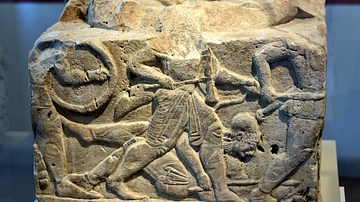
Image
Base of a Cippus Showing Greeks & Amazons
The base is surrounded by a frieze of Greeks and Amazons, yet without fighting action. Possibly, this early Etruscan "Amazonomachy" is a game or a parade within the context of the death cult. The Amazons' clothing corresponds with that on...

Image
Juno Sospita Antefix
This antefix depicts the head of Juno; an ancient Roman goddess. Clay. From Latium, Italy. Circa 500-480 BCE. It is on display at the Altes Museum in Berlin, Germany. Acquired from Collection Bellori in 1698 CE.
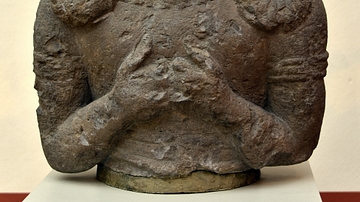
Image
Statue of a Woman from Vulci
The upper part of the head is lost. This statue is one of the earliest large-scale sculptures from Vulci. It was created under the influence of Greek-Daedalic sculpture. The hairstyle and jewelry are based on oriental antetypes. From Vulci...